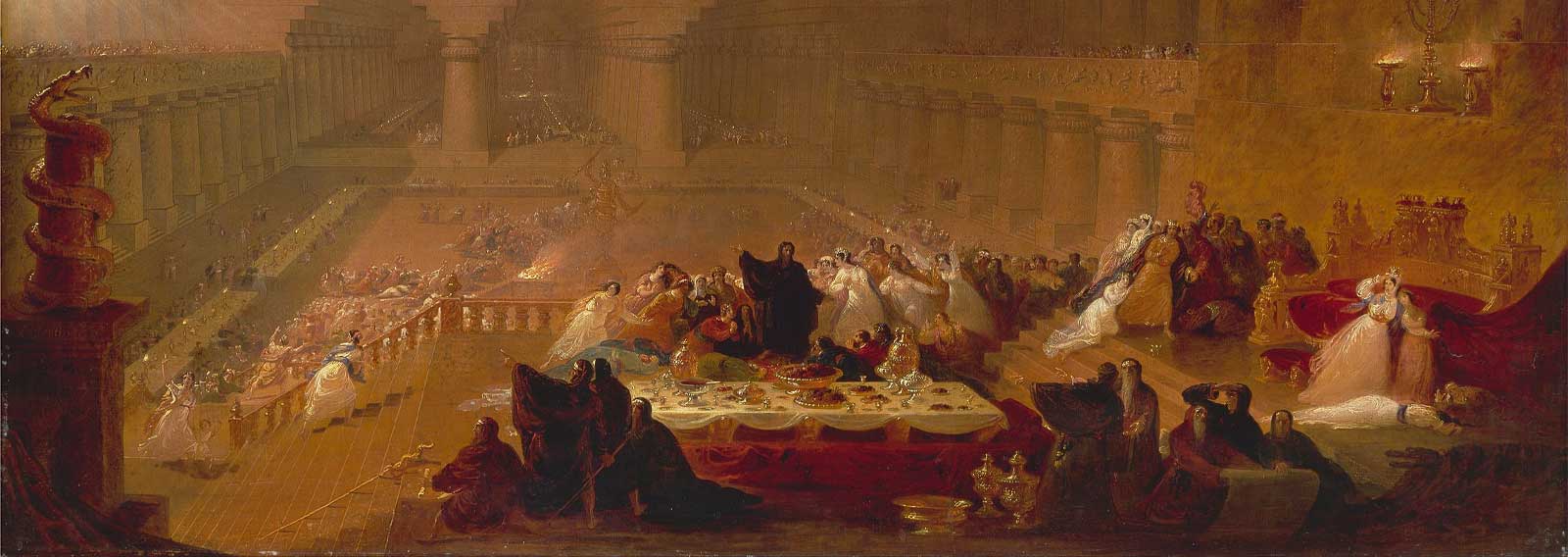A major problem we have as mere fallen and finite creatures is that we lack perspective. We do not see the big picture and we do not consider the long term. Christians can be just as guilty of this as non-Christians. We can too easily become overwhelmed by events going on around us. This can especially be true regarding wicked rulers and evil nations.
I have been around for a while now, and I recall worrying greatly about things like the Soviet Union and the Eastern Bloc. Communism seemed to be the wave of the future back then. But of course, the wall came down in 1989, and over seven decades of godless Communist rule came to an end – at least in that part of the world.
Many empires have come and gone over the centuries, be they the Assyrians, the Babylonians, the Romans, and so on. Yet when we see powerful and evil nations today, it still can seem like they are on the ascendancy, and even darker days lie ahead.
Communist China is a case in point. This is one frightening police state that has nefarious global ambitions. Yet it too will one day be no more. Just today I caught a sub-headline that said this: “China’s ‘shadow bank’ sector is on the brink of a potential $4.5 trillion disaster. And the rest of the world could be exposed.”
Whether or not that comes about, we do know that Communist China’s days are numbered, just like every other nation. And Xi Jinping is not invincible, just like every other ruler. This is certainly the message found in Daniel. I am reading again this short but powerful Old Testament book. If its mega-theme is the sovereignty of God, its sub-theme is this: God is in charge of the nations.
He raises them up and he brings them down. Sure, we find that message throughout Scripture, but it certainly is clearly spelled in this book – both in the narrative half (chapters 1-6), and the prophetic half (chapters 7-12). When in the space of a few short chapters you get a message repeated over and over, we need to sit up and take notice. Consider these verses for example:
- Daniel 2:21 He removes kings and raises up kings
- Daniel 2:37 Your Majesty, you are the king of kings. The God of heaven has given you dominion and power and might and glory;
- Daniel 4:17 the Most High rules the kingdom of men and gives it to whom he will
- Daniel 4:25 the Most High rules the kingdom of men and gives it to whom he will
- Daniel 4:32 the Most High rules the kingdom of men and gives it to whom he will
- Daniel 5:21 the Most High God rules the kingdom of mankind and sets over it whom he will
Hmm, maybe God is trying to tell us something here. While many wicked rulers may think they are gods, they are nothing in the eyes of the one true God, and their days are clearly limited. And just as God rejects and will judge a proud individual, so too he will reject and judge proud nations and their rulers.
The last verse I offered just above is worth looking at further and in context. You recall what is found in Daniel 5: the story of King Belshazzar and the handwriting on the wall. Daniel interprets this ominous writing, and then says this to the king in verses 19-21:
And because of the greatness that he gave him, all peoples, nations, and languages trembled and feared before him. Whom he would, he killed, and whom he would, he kept alive; whom he would, he raised up, and whom he would, he humbled. But when his heart was lifted up and his spirit was hardened so that he dealt proudly, he was brought down from his kingly throne, and his glory was taken from him. He was driven from among the children of mankind, and his mind was made like that of a beast, and his dwelling was with the wild donkeys. He was fed grass like an ox, and his body was wet with the dew of heaven, until he knew that the Most High God rules the kingdom of mankind and sets over it whom he will.
Some commentary on this is worth sharing here. Let me first quickly speak to Dan. 5:5-6: “Immediately the fingers of a human hand appeared and wrote on the plaster of the wall of the king’s palace, opposite the lampstand. And the king saw the hand as it wrote. Then the king’s color changed, and his thoughts alarmed him; his limbs gave way, and his knees knocked together.”
The ESV and some other versions are a bit too polite here. As various commentators have noted, the king was all shook up – big time. As Joe Sprinkle comments:
“That he soiled himself” (v. 6b) reads literally, “the knots of his loins were loosened.” Al Wolters argues convincingly that this idiom actually means he involuntarily emptied his bladder (and perhaps colon) out of fear.
That would likely be our response as well if some handwriting suddenly appeared on our wall! Indeed, anyone meeting the living God will have a hardcore reaction. After God revealed to Daniel his vision, he said this: “My thoughts greatly alarmed me, and my color changed” (Dan. 7:28).
Recall that the king’s color had changed as well – the same phrase is used. And we read this after God revealed another of his visions to him: “And I, Daniel, was overcome and lay sick for some days. Then I rose and went about the king’s business, but I was appalled by the vision and did not understand it” (Dan. 8:27).
But getting back to verses 19-21, James Montgomery Boice says there are three important lessons found here:
- Sin is not static.
- Sin makes us impervious to danger.
- God is not static.
As to that third point, he says this:
There are times in history when sin abounds and God does not seem to intervene – at least not spectacularly. But we must not think that God is unaffected by sin or that he will ignore it forever simply because his judgments are postponed. In times like these the wrath of God accumulates, like waters rising behind a dam. The time eventually comes when that great accumulation of wrath is poured out against sinners. This happens to nations at the moments of their greatest arrogance. It happens to individuals. It happens when the judgments of God are least expected.
Given that the father of King Belshazzar had been humiliated by God for his arrogance, he should have learned some lessons by now. We find the story of Nebuchadnezzar (and his eventual restoration) in Dan 4:28-37. Stephen Miller puts it this way:
Belshazzar had seen with his own eyes what happened to Nebuchadnezzar, and yet he had refused to humble himself before the Most High God. This made Belshazzar’s blasphemy against Israel’s God even more inexcusable. Instead of glorifying Yahweh, he purposely defied him (“set yourself up against the Lord of heaven”) by desecrating his holy things in using them to praise his idols (v. 23). By committing this act of sacrilege, Belshazzar had actually issued a challenge to “the Lord of heaven.”
In spite of the knowledge of Yahweh’s reality and power demonstrated through Nebuchadnezzar’s experience, Belshazzar had deliberately chosen to worship the idols of Babylon. Daniel used blunt language in describing these gods as mere objects “of silver and gold, of bronze, iron, wood and stone, which cannot see or hear or understand” (cf. Deut 4:28; Ps 115:4–7; 135:15–17). Young rightly comments: “These words well illustrate the folly of any way of life which is not founded upon true theism, for all idols, whether they be of wood or stone, the creation of men’s hands, or finely-spun philosophies, the creation of men’s minds, cannot see nor hear nor know.” Belshazzar praised this pantheon of lifeless idols, but the living God, who held his very life (lit., “breath”; cf. Gen 2:7) and all his “ways” (his life’s course) in his hand, the king had refused to honor.
And it is not just political leaders that must heed this message. As Bryan Chapell reminds us:
Belshazzar was not the last to believe that his sin was protected by a wall of human achievement. Tiger Woods, Pete Rose, Bernie Madoff, Michael Milkin; Ted Haggard, Jimmy Swaggert. The names change; the message does not. Mene, Tekel, Peres. Mene: numbered out; Tekel: weighed and found wanting; Peres: divided and cast down. Secure in the world, sinful before God, judged. Despite their achievements and apparent invulnerability, those unrepentant before God will ultimately be identified, weighed, and judged. The words still apply even to sports figures, business leaders, and religious leaders. But the words do not accomplish their purpose if we think that they do not have some application to us as well. The cautionary tales of these public figures are only items of titillating gossip if we do not hear the echoes of Mene, Tekel, Peres for our own lives.
Yes, quite so. We must take these words to heart as well. But as to my main theme here, we can rest assured that evil rulers and blood-thirsty nations will NOT endure. They will come to their appointed end. But God and HIS kingdom will most certainly last. That is the unambiguous message of Daniel. As we find in Dan. 7:14:
“And to him was given dominion and glory and a kingdom, that all peoples, nations, and languages should serve him; his dominion is an everlasting dominion, which shall not pass away, and his kingdom one that shall not be destroyed.”
Or as we read in 7:27:
“And the kingdom and the dominion and the greatness of the kingdoms under the whole heaven shall be given to the people of the saints of the Most High; his kingdom shall be an everlasting kingdom, and all dominions shall serve and obey him.”
Those are such comforting and hope-filled passages. Whether it is a Kim Jong Un in North Korea, or on a somewhat lesser level, a Dan Andrews in Victoria, or a Justin Trudeau in Canada, these rogue rulers and arrogant elites will most certainly not be around much longer – certainly in light of eternity.
We can pray for leaders like this, that they have an encounter with the living God and are restored, as happened with Nebuchadnezzar. Otherwise, their fate will be that of Belshazzar.

















